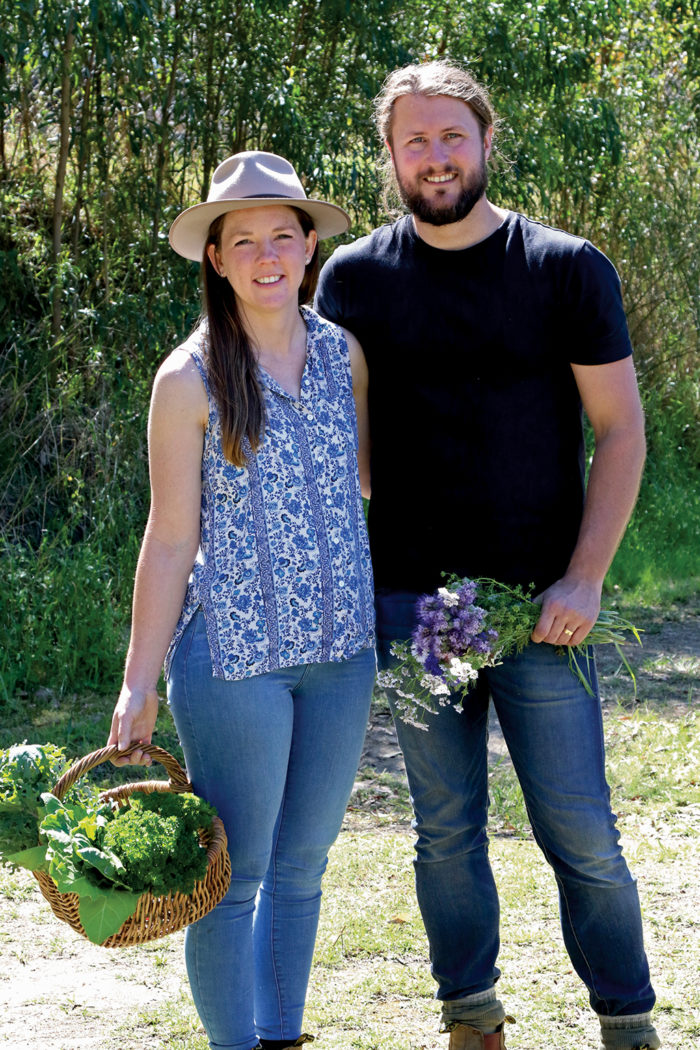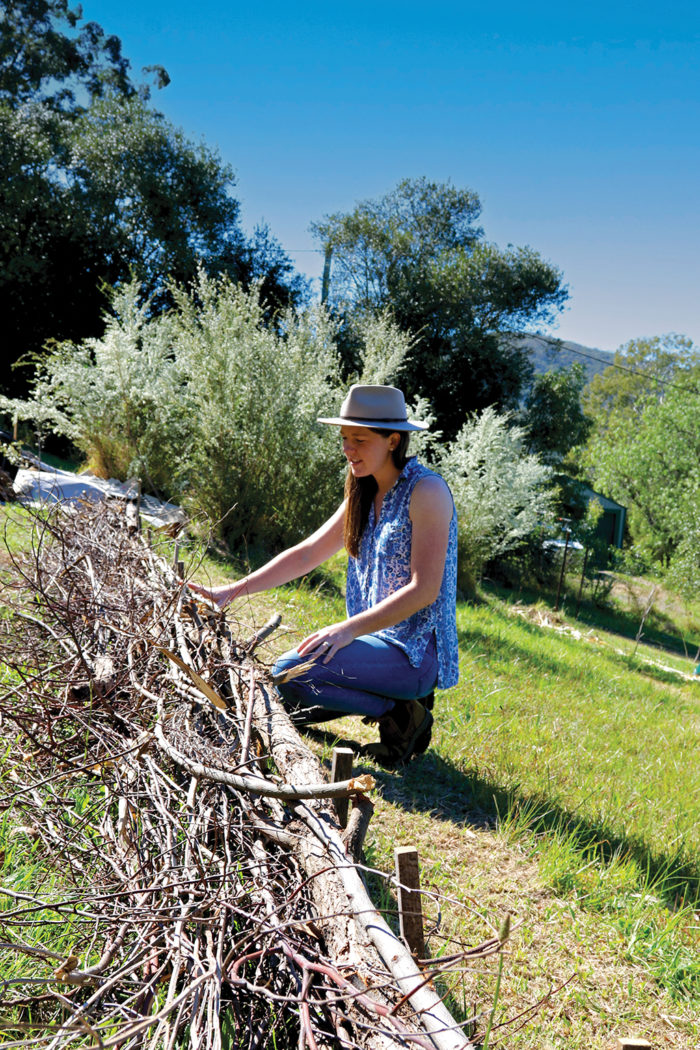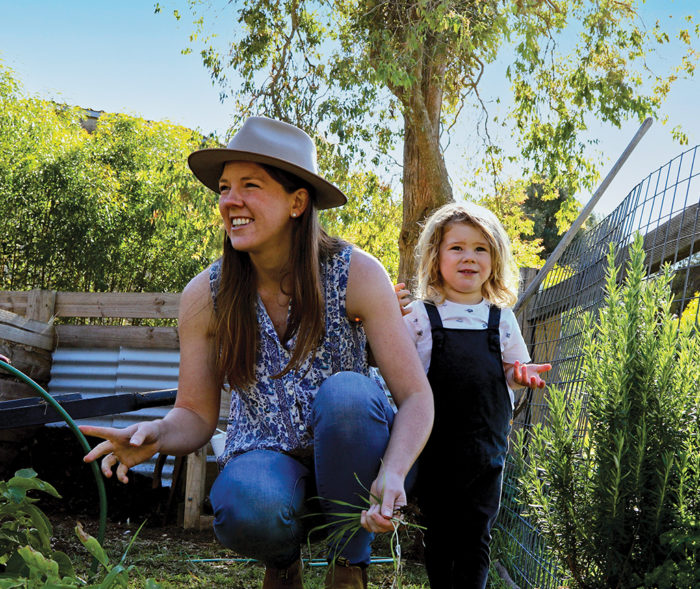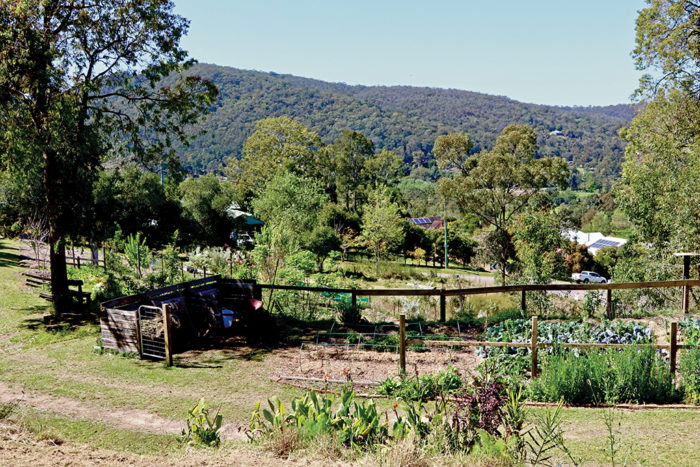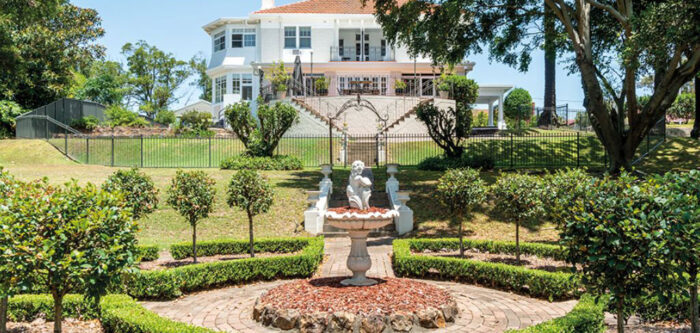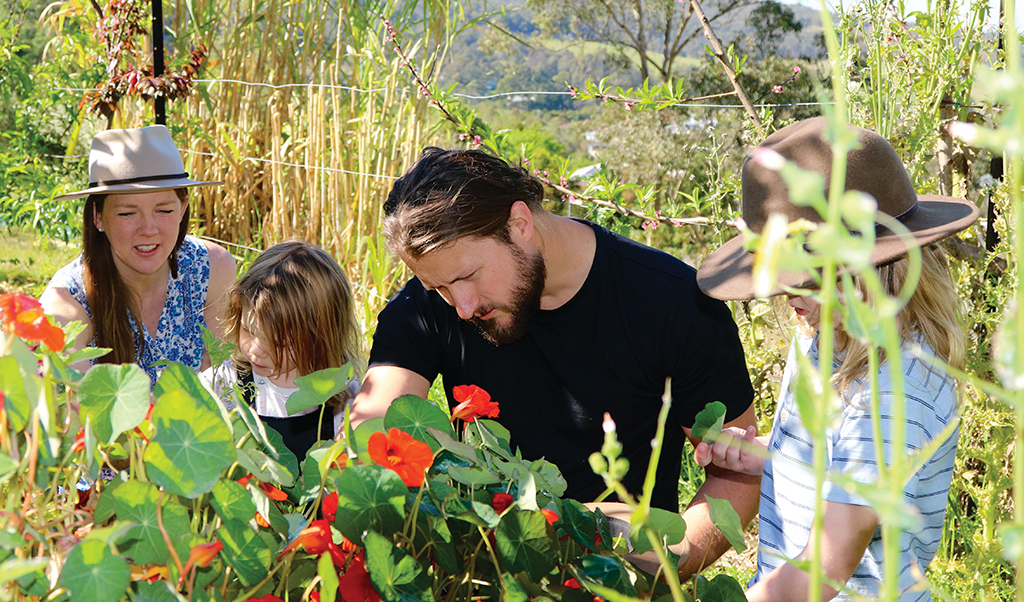
Permaculture paradise in the Valley
Will and Anthea Power are the founders of Maplewood Permaculture in the Paterson Valley, working to make ‘community sufficiency’ a reality, using permaculture as a starting point.
It’s a familiar story. Both Will and Anthea were exposed to farming and home-scale food production while growing up in different parts of the Hunter region. After moving to Newcastle and starting a family, they began to look more deeply into the origins of the food they ate.
“It started when we were going to have Emmett (now 6 years old), and we started thinking more about what we were eating; and that the only real way to know how your food is being grown is to grow it yourself. So we began growing our own food – and through that we found out about permaculture – and that it really suited us,” explains Anthea.
Wanting to learn more about permaculture than what they could find in books and online, Will decided to do his Permaculture Design Certificate with Limestone Permaculture in the Karuah Valley. In between working their day jobs, Will as a teacher and Anthea in customer service, and raising their two young boys they began exploring how to put their new knowledge into practice.
Permaculture in practice
In 2018 they purchased what was essentially a horse paddock in Paterson and embarked on the task of setting up Maplewood Permaculture Farm, the name inspired by the maple trees they planted at the entrance to their property.
“The trees are the first thing we see when we drive in and you can tell what’s happening – you’ve either got completely naked trees, or they’re budding or they’ve got red leaves or green leaves. The trees tell you what’s happening in the garden,” Anthea says.
“The whole idea of Maplewood Permaculture is to use permaculture principles to bring the landscape back to something that is working with the wildlife that’s already here and to regenerate this land,” says Will.
“We’re doing it on a modest budget and with modest tools. We don’t have a tractor, so we’re working with hand tools.
“When bringing permaculture principles into what we are doing there’s often the old mantra of the problem is the solution. Permaculture – to us – is less effort in the long run.
“There’s effort in the implementation, but when you get systems that work together, long term that means there’s less to do,” says Anthea.
Will uses the example of their orchard to illustrate how these systems can work. “Our orchard is planted along contoured swales that harvest water and build soil.
“The trees themselves are espaliered which makes it easy to harvest fruit, and to net some to protect them from wildlife. Instead of fertilising, we have placed supporting plants that provide mulch as well as ground-cover, draw up nutrients from deep in the soil, and attract beneficial insects.
“The whole area is fenced as an integrated yard for ducks and geese to keep down the grass and pests, with cycling nutrients available in the orchard.All up, watering, mulching, nutrients and pest control largely take care of themselves as the system matures.”
Will and Anthea are currently renting a house near their Paterson block. And while permaculture is a key focus, they also want to build a home and create a place to raise their family and pass on their knowledge.
“We want to work with the energy that we can harvest ourselves on-site so we’ve got plans in at council to build a solar passive, hemp masonry home with a grey water management system that will hopefully capture all our waste water.”
As the family is moving towards living on site, they’re also laying the foundations for a much bigger concept.
Read more about Permaculture in our Autumn issue of Hunter & Coastal Lifestyle Magazine or subscribe here.
Story and photography by Sally Maguire

